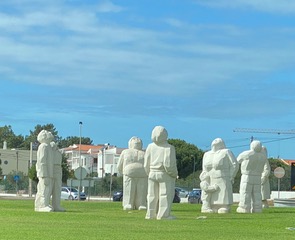Q: Why are you writing short stories? You’re a novelist!
A: I write short stories for two main reasons.
1. Finding the correct medium is as important as the story itself, and not all mediums best serve a narrative arc.
How many times have you watched a limited series and thought, “Why didn’t they just make this into a movie? That was a lot of wasted time.” That. That was the wrong medium for that narrative arc. Each medium has its own set of criteria for developing the narrative arc. It’s up to the writer or, in the case of media presentations, writers to determine how best to tell the story with regards to pacing and character development. It’s hard work, and sometimes the mark is missed.
As a writer, it’s my responsibility to help my stories find the medium that best serves their needs. Some stories need a long form, while others need little space to relay a compete arc. Like screen writers, I have to keep audience expectations in mind when composing, and sometimes the mark is missed. But sometimes, I nail it! It comes down to craft and choosing the narrative form that best serves the story.

2. I need to work on more than one project at a time, and short stories provide a highly focused creative challenge that invigorates me.
Three years ago, I created a writing schedule that over time stopped working. I needed a change; so, I added writing challenges to my routine. The flash fiction challenge energized me. I rewrote a chapter as a flash fiction story. From there, I revamped a novel manuscript into a collection of short stories. By backing away from a strict process of only focusing on novels, I discovered the joy of creating short stories. The process and parameters for this narrative form nurture my soul. Flipping between projects in an assortment of narrative forms, even within historical fiction, feeds my creative juices. Once I removed my “novel-only” mentality, I began writing more, reading more. I rediscovered my love of writing.
I dream in words, hear characters having conversations, solve logic puzzles that coalesce into narrative. It’s up to me, as the creator, to determine how best to present these stories. The trick is knowing when to step back and re-examine the form my stories need to make them accessible to readers. The pain is in totally rethinking a project, erasing what’s been done, and starting over.
Yes, I’m a novelist, but more importantly I’m a writer. I tell stories. That’s it.

